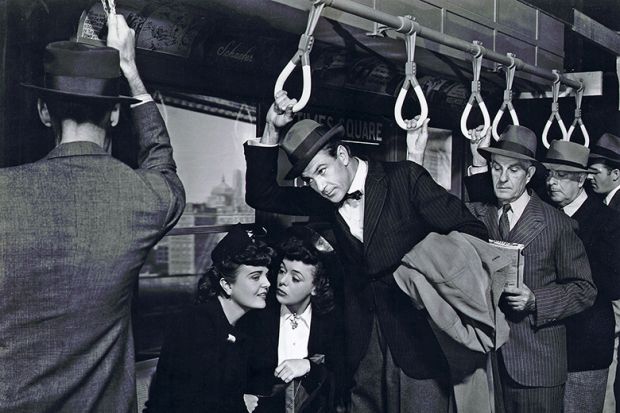Almost one in four lecturers at UK universities claims to have been subjected to bullying by colleagues over their academic views, a survey suggests.
Of 2,300 people who responded to a University and College Union poll on academic freedom, 23 per cent said that they had suffered workplace bullying on account of their scholarly views, while 27 per cent claimed that they had faced “psychological pressure” over their opinions.
Examples of bullying listed by staff include “isolation, exclusion, direct conflict [and] passive aggression” from management, “thinly veiled threats and undermining by line manager”, “gossip and isolation” and “political wranglings to take away courses and research interests", according to the UCU.
Eleven per cent of respondents also claimed that they had faced or been threatened with some sort of disciplinary action regarding their academic views, such as “dismissal for bringing the university into disrepute”, written warnings, poor evaluations, denial of sabbatical leave and denial of promotion.
Although many had not suffered overt pressure from colleagues, others reported feeling the need to “self-censor” their views to avoid conflict with management or peers, with 36 per cent saying that fear of reprisals had caused them to refrain from publishing, teaching or talking about a particular topic.
The results of the poll have been compiled by Terence Karran and Lucy Mallinson, of the University of Lincoln, for a report on academic freedom to be unveiled at the UCU congress, which takes place in Brighton on 27-29 May.
“If so many academics have a fear of being bullied for their views, what sort of example are we setting for students?” asked Professor Karran.
According to the report, Academic Freedom in the UK: Legal and Normative Protection in a Comparative Context, some 56 per cent of scholars felt that the research excellence framework had diminished their individual academic freedom, while 70 per cent were concerned that the teaching excellence framework would limit their ability to exercise academic freedom, such as their power to fail students who were not up to scratch or their scope to teach in a different or innovative manner.
Professor Karran, who was awarded a €300,000 (£259,000) European Union grant in 2013 to study academic freedom across its member nations, said that UK academics felt less confident about the protections of scholarly freedoms than their peers on the Continent.
While half (49 per cent) of the 4,200 EU scholars surveyed in Professor Karran’s EU-wide study felt that they had a high level of protection, just a fifth (22 per cent) of UK academics who answered the UCU survey reported feeling the same way. About half of UK respondents (52 per cent) felt that academic freedom protections had been eroded in recent years, whereas only 34 per cent of EU academics said that this was the case.
POSTSCRIPT:
Print headline: 23% of scholars ‘bullied for views’
Register to continue
Why register?
- Registration is free and only takes a moment
- Once registered, you can read 3 articles a month
- Sign up for our newsletter
Subscribe
Or subscribe for unlimited access to:
- Unlimited access to news, views, insights & reviews
- Digital editions
- Digital access to THE’s university and college rankings analysis
Already registered or a current subscriber? Login








